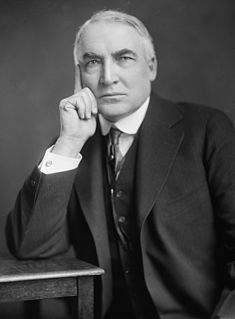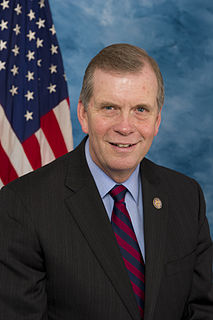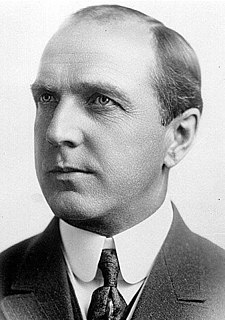A Quote by Warren G. Harding
Our most dangerous tendency is to expect too much of government, and at the same time do for it too little.
Related Quotes
We drink too much, smoke too much, spend too recklessly, laugh too little, drive too fast, get too angry, stay up too late, get up too tired, read too little, watch tv too much. We have multiplied our possessions but reduced our values. We talk too much, love too seldom, and hate too often. We've learned how to make a living but not a life. We've added years to life, not life to years.
Government is not a solution to our problem, government is the problem. ... Government does not solve problems; it subsidizes them. Government's view of the economy could be summed up in a few short phrases: If it moves, tax it. If it keeps moving, regulate it. If it stops moving, subsidize it. ... The problem is not that people are taxed too little, the problem is that government spends too much.
We may as well face the fact, and face it squarely, that we are too much governed. The agencies of government have multiplied, their ramifications extended, their powers enlarged, and their sphere widened, until the whole system is top-heavy. We are drifting into dangerous and insidious paternalism, submerging the self-reliance of the citizen, and weakening the responsibility and stifling the initiative of the individual. We suffer not from too little legislation but from too much. We need fewer enactments and more repeals.
Now, brethren, this is one of our greatest faults in our Christian lives. We are allowing too many rivals of God. We actually have too many gods. We have too many irons in the fire. We have too much theology that we don't understand. We have too much churchly institutionalism. We have too much religion. Actually, I guess we just have too much of too much.
It may be no less dangerous to claim, on certain occasions, too little than too much. There is something captivating in spirit and intrepidity, to which we often yield as to a resistless power; nor can we often yield as to a resistless power; nor can he reasonably expect the confidence of others who too apparently distrusts himself.
When we get out of highschool we'll look back and know we did everything right, that we kissed the cutest boys and went to the best parties, got in just enough trouble, listened to our music too loud, smoked too many cigarettes, and drank too much and laughed too much and listened too little, or not al all.
































